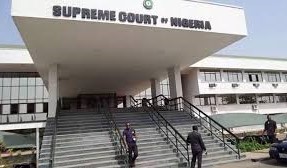…as SERAP tells 36 govs, FCT minister to return LG funds or face legal action
Commendations have trailed the Supreme Court ruling on local government autonomy, with many, including President Bola Tinubu, hailing it as a victory for democracy and Nigerians.
The apex court, while delivering judgement on the suit filed by the Attorney General of the Federation, Lateef Fagbemi (SAN), on behalf of the Federal Government, seeking full autonomy for local government councils in the country, had declared that local government councils should receive and manage their allocations themselves.
The court said state government had no power to dissolve a democratically-elected local government council and putting in place a caretaker committee, stating that only democratically-elected local government councils are constitutionally and legally recognized.
Reacting to the judgement, President Bola Tinubu emphasized its critical role in advancing effective governance at the grassroots level, noting that ineffective local government administration has been a significant obstacle to national progress.
“The Renewed Hope Agenda is about the people of this country, at all levels, irrespective of faith, tribe, gender, political affiliation, or any other artificial line they say exists between us,” Tinubu said in a statement on Thursday by his Special Adviser on Media and Publicity, Ajuri Ngelale.
“This country belongs to all of us. By virtue of this judgment, our people – especially the poor – will be able to hold their local leaders to account for their actions and inactions. What is sent to local government accounts will be known, and services must now be provided without excuses,” he said.
He emphasised that the onus is now on local council leaders to deliver people-oriented services, ensuring that Nigerians at the grassroots feel the impact of governance.
Senate Minority Leader, Abba Patrick Moro, who represents Benue South Senatorial District, stated that the ruling will bring rapid development to the grassroots where majority of Nigerians live and transact businesses. He charged governors to abide by the ruling and allow the local government to function optimally for the overall good of all Nigerians.
On its part, the Socio-Economic Rights and Accountability Project (SERAP) urged the 36 state governors and the Minister of the Federal Capital Territory, Abuja, Nyesom Wike, to immediately account for and return the local government funds which they have collected over the years or face legal action.
In a statement on Thursday signed by its deputy director, Kolawole Oluwadare, SERAP applaud the Supreme Court for this groundbreaking decision which, it said, will end the persistent alleged misappropriation by several of trillions of FAAC allocations or public funds meant for local governments.
“Following the Supreme Court judgment, there is now a clear legal precedent to hold governors and FCT ministers to account for how they have spent the local government funds collected by them,” SERAP said.
“Implicit in the Supreme Court judgment is the requirement for the governors and FCT minister to immediately account for and return the funds meant for local governments but retained and used or allegedly misused by them.
“Accounting for and returning the LGA funds collected would build trust in democratic institutions and strengthen the rule of law.
“The National Assembly must urgently amend the provisions Section 162 of the Nigerian Constitution 1999 [as amended] to ensure that local government allocations from the Federation Account are directly paid to local government areas and not collected by governors and FCT.
“If the governors and FCT minister fail to account for and return the funds meant for local governments in their states and FCT within 7 days, SERAP shall consider appropriate legal actions to compel the governors and FCT minister to comply with our requests in the public interest.
“It is in the public interest for the governors and FCT minister to immediately account for and return the funds meant for local governments in their states and the FCT since 1999.
“Accounting for and returning the local government funds collected would alleviate poverty, improve access of Nigerians to basic public goods, and enhance the ability of the local governments to effectively and efficiently discharge their constitutional and statutory responsibilities,” it said.


